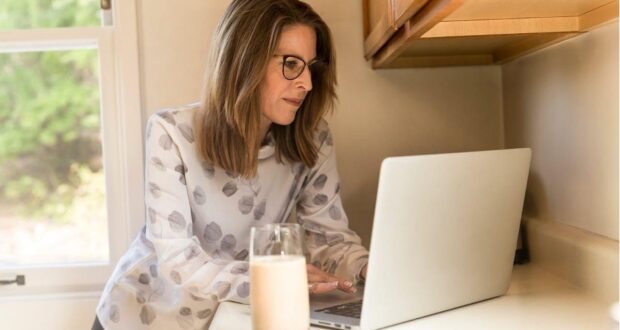By: Guest Author
Published: March 14, 2024
Written by Ainsley Lawrence- Guest Contributor
Menopause can be a particularly challenging time for many women. Yes, middle age and later life can offer so many rich and positive experiences. Nevertheless, menopause symptoms and the way they affect your day-to-day life can be frustrating, uncomfortable, and just plain lonely.
This is why online communities can be such an invaluable resource. They foster a sense of belonging and empower women to share experiences and advice that ultimately support every member. If you haven’t yet found a way to meaningfully connect with your people, you might consider building your own digital community.
This can take some planning, commitment, and creativity. However, the outcomes can be powerful for everyone involved. So, let’s explore some ways you can make a positive start.
Create Authoritative and Valuable Content
Many women experience difficulty during menopause because of the unhelpful stereotypes and misinformation that exist around this pivotal threshold in life. Even many doctors aren’t providing accurate and consistent advice on the subject.
The vast majority of individuals who are seeking information about menopause are doing so online. In fact, a recent study from BMC Women’s Health indicates that most women rely on independent websites and friends for information about this significant stage in a woman’s life, especially because over 80% of the participants surveyed did not receive any information about menopause in their school curriculum. In short – women are relying on other women to help guide them through this difficult period of their life, with nearly 58% of participants stating that they found their menopause period “difficult or very difficult”.
This makes reliable digital communities an incredibly important resource for women navigating menopause. They provide a venue for women to share real-world experiences, remedies, and insights. To help break down the stigma of menopause, you can contribute to this community as well by providing authoritative and valuable content on the subject.
This can take the form of deep-dive blog posts on menopause topics. You could also produce podcasts of discussions with recognized experts or share other women’s experiences. Short videos on Instagram and TikTok are also great ways to deliver snippets of advice.
Embrace the Wellness Benefits of Content Creation
Don’t forget that building a digital community around menopause can hold some great wellness benefits. Certainly, the sense of belonging your community shares is likely to be a mood booster. But, you should also understand and embrace how creating materials for your community content could directly influence some symptoms of menopause.
For instance, brain fog and other cognitive difficulties are common during menopause. You’ll be using problem-solving and creative skills to regularly make materials for your website and social media channels. This, alongside activities such as card games, can help minimize cognitive decline. Incorporating tasks that enable you to exercise your observational skills and working memory empowers you to stay cognitively and psychologically healthy.
Wherever possible, use this to help your growing community, too. Share your experiences about how creating content has helped your wellness and invite members to submit user-generated content. This doesn’t just have the potential to boost the health of your group. You’re also demonstrating that you’re keen to make your community mutually supportive in which everybody has a valuable voice.
Start a Conversation On and Offline
Building a community around menopause isn’t just about creating content for an audience. The most impactful communities are often those based on meaningful interactions for everyone involved. This doesn’t always come naturally. Therefore, as a leader of the community, you need to make regular efforts to engage with other members.
You can start by making certain that you respond to comments on your social media channels. Whenever possible, start conversations with people here. If someone thanks you for your practical advice, ask them if they’ve adopted it and what experiences they’ve had with it. If someone disagrees with your information, be open to having an honest and constructive discussion with them. This shows your burgeoning community that you care about their opinions.
However, social media can also make certain interactions seem less natural and more difficult. For this reason, you might want to consider other forms of building your community online, such as video content, or offering for community members to share their stories or call in with questions to a podcast. Starting a successful podcast is easier than you think after you acquire the correct equipment. Once you have finished the first few episodes, you can add your podcast to a variety of directories. In addition to getting more listeners, this can also expand the reach of your podcast so that more women can become educated about this crucial time in their lives.
Conclusion
Building a digital community around menopause has the potential to offer valuable connections and resources to many women. It’s important to take a mindful approach to this, ensuring your online space is credible, engaging, and inclusive. If you don’t feel able to go it alone, consider starting a group with some friends or relatives. This spreads the workload while also allowing you all to share in a positive project.
—
Ainsley Lawrence is a freelance writer who lives in the Northwest region of the United States. She has a particular interest in covering topics related to good health, balanced life, and better living through technology. When not writing, her free time is spent reading and researching to learn more about her cultural and environmental surroundings. You can follow her on Twitter @AinsleyLawrenc3.
The views expressed herein this article, written by a guest contributor, do not necessarily represent those of the Red Hot Mamas organization. The content is for informational purposes and should not substitute the advice of your doctor.
 Red Hot Mamas In Charge of Change.
Red Hot Mamas In Charge of Change.




